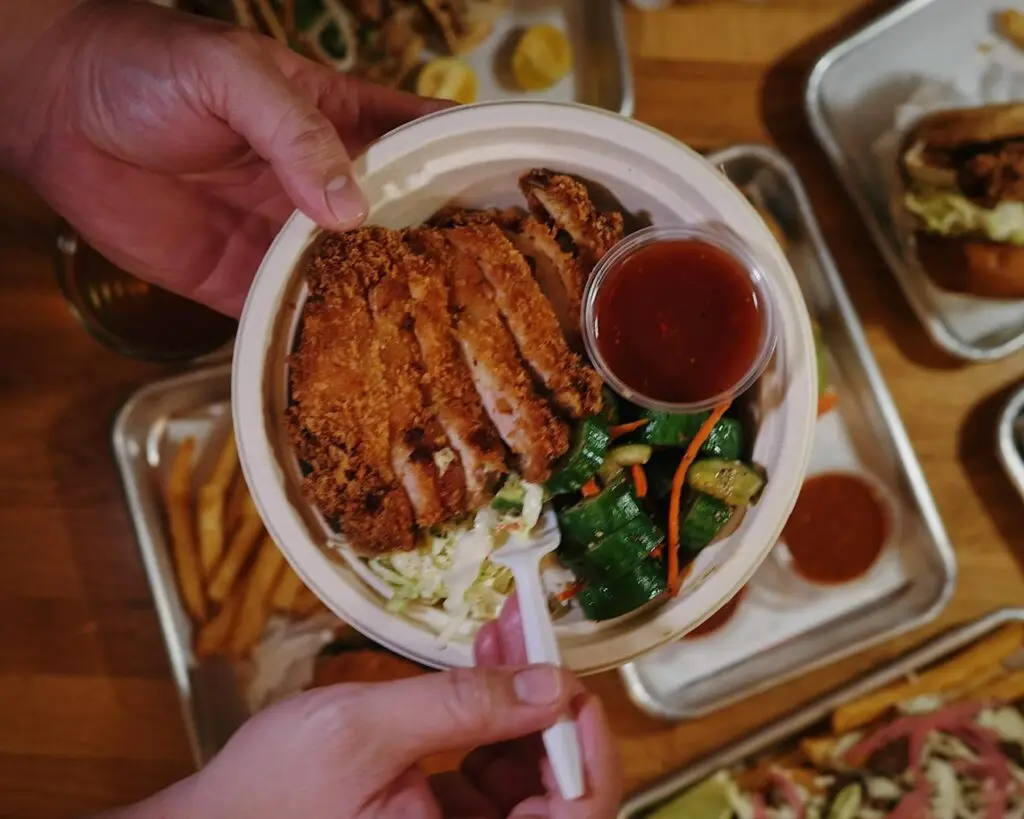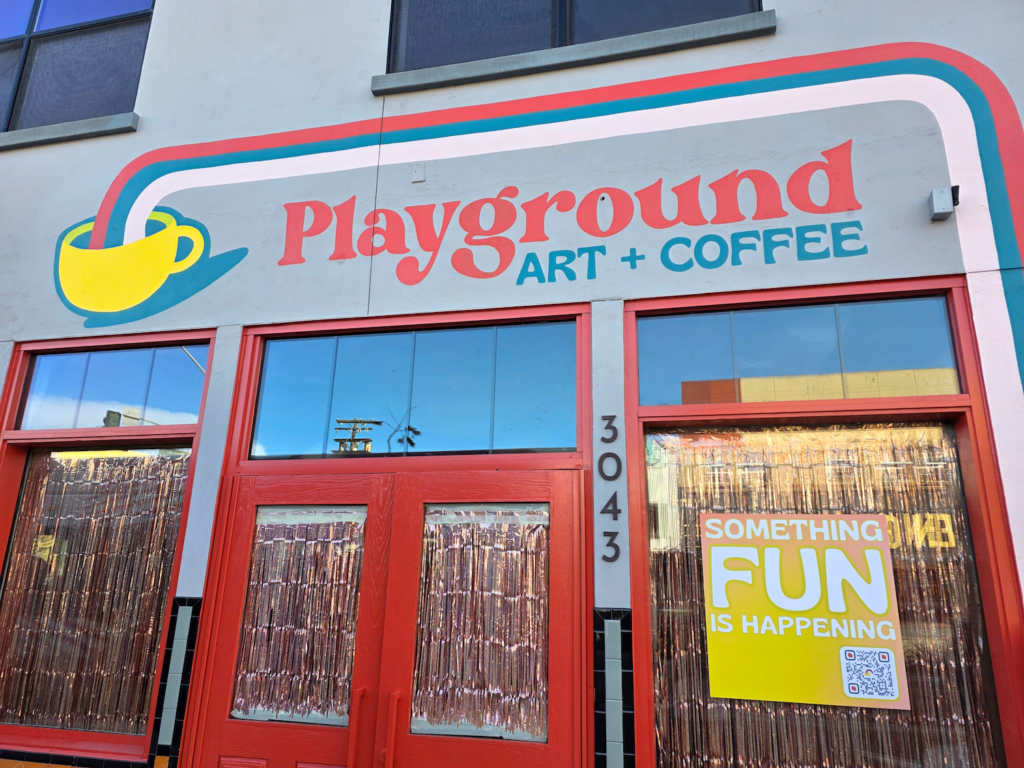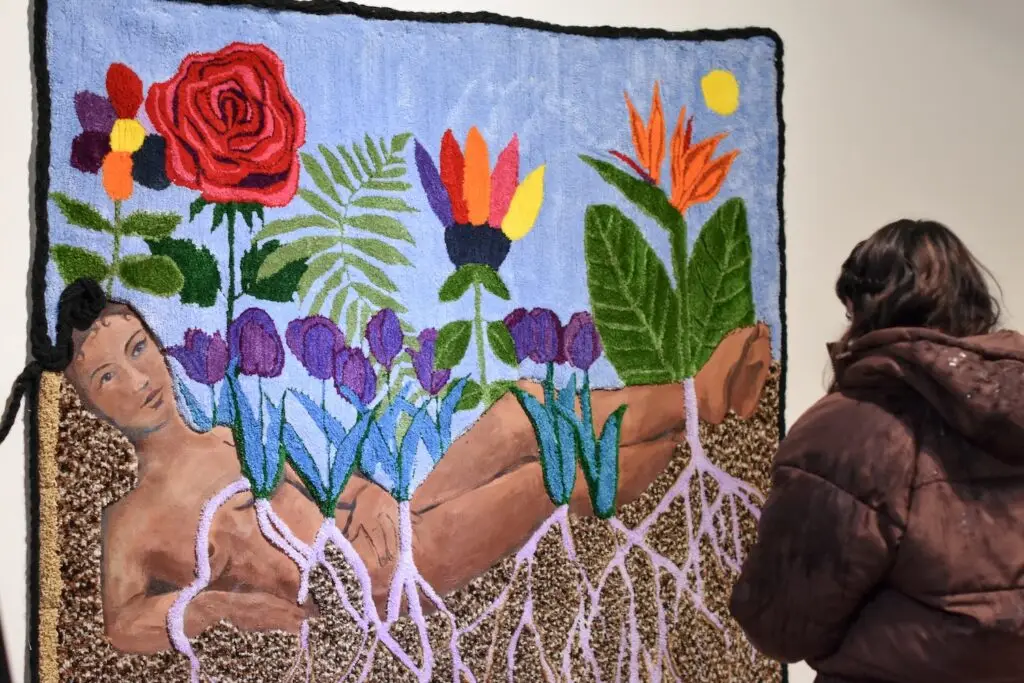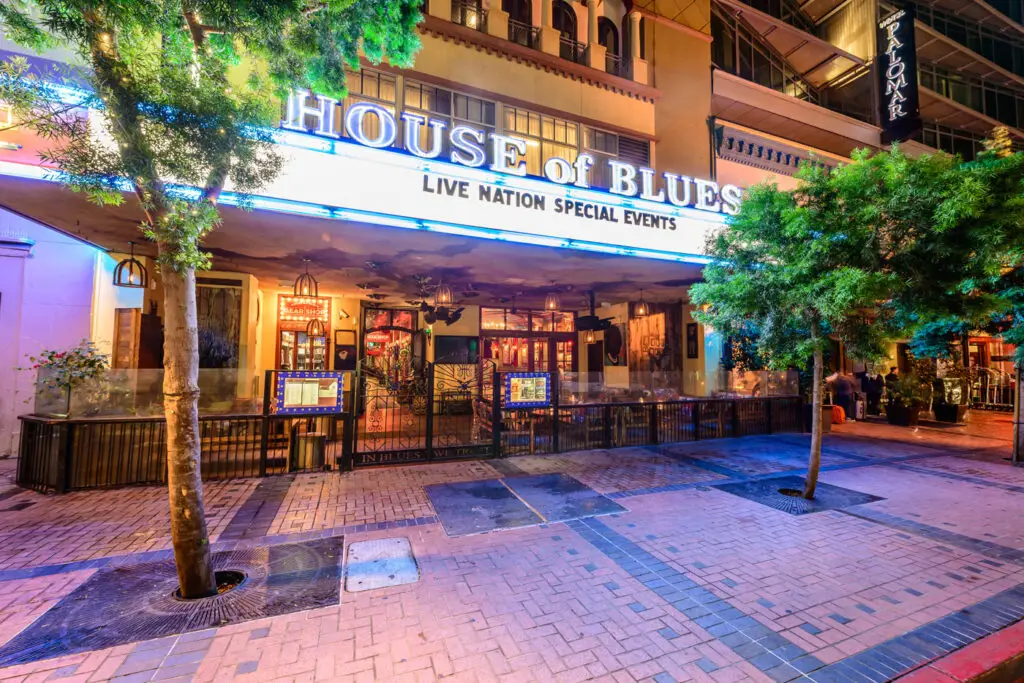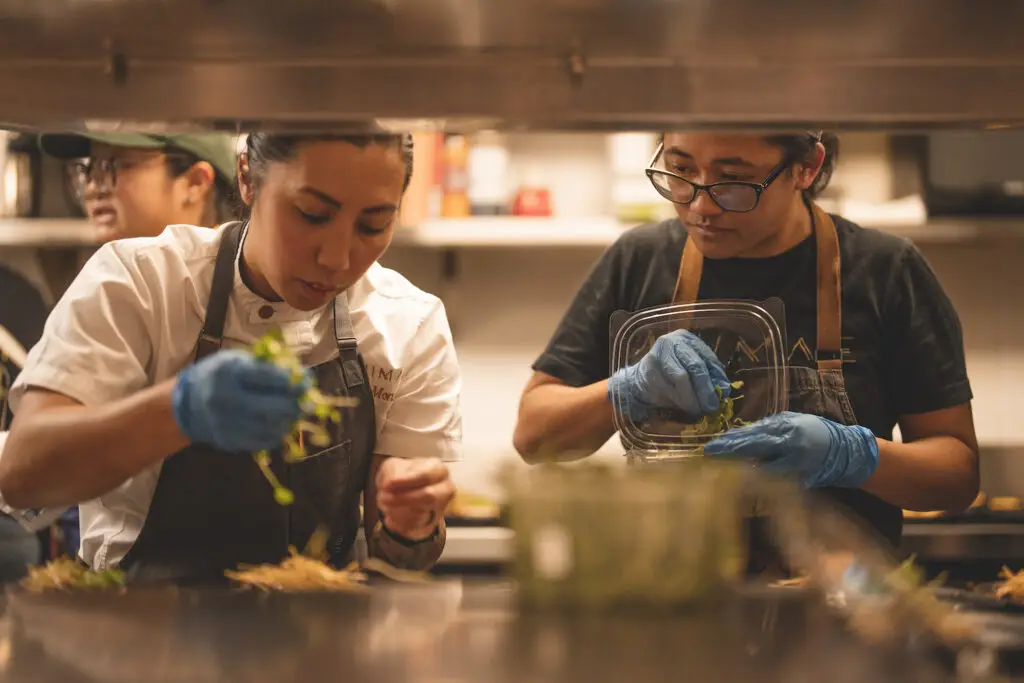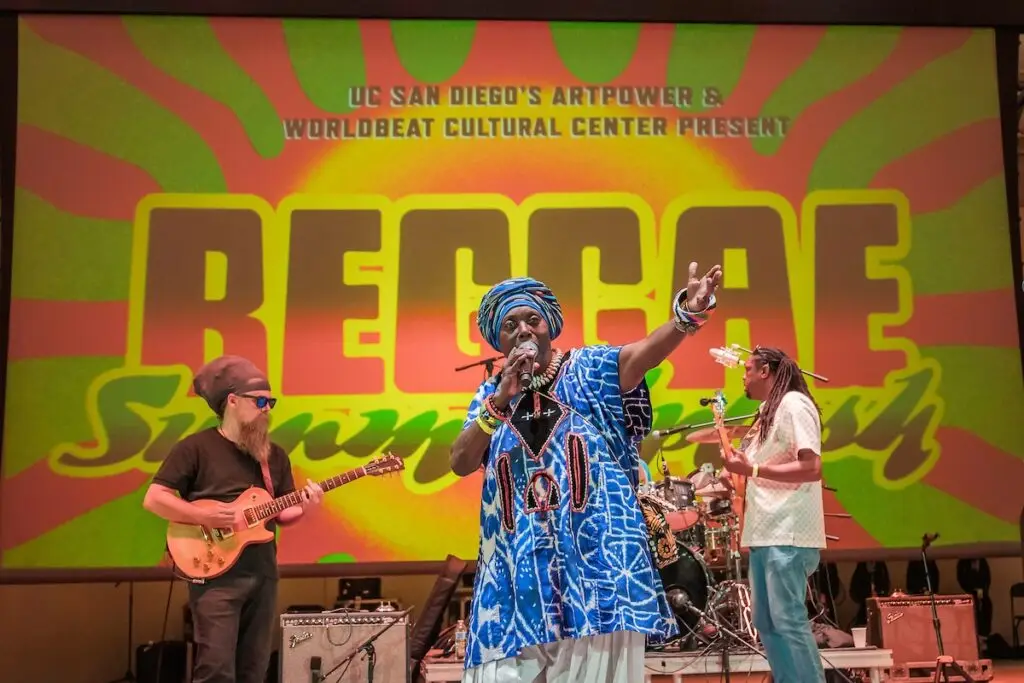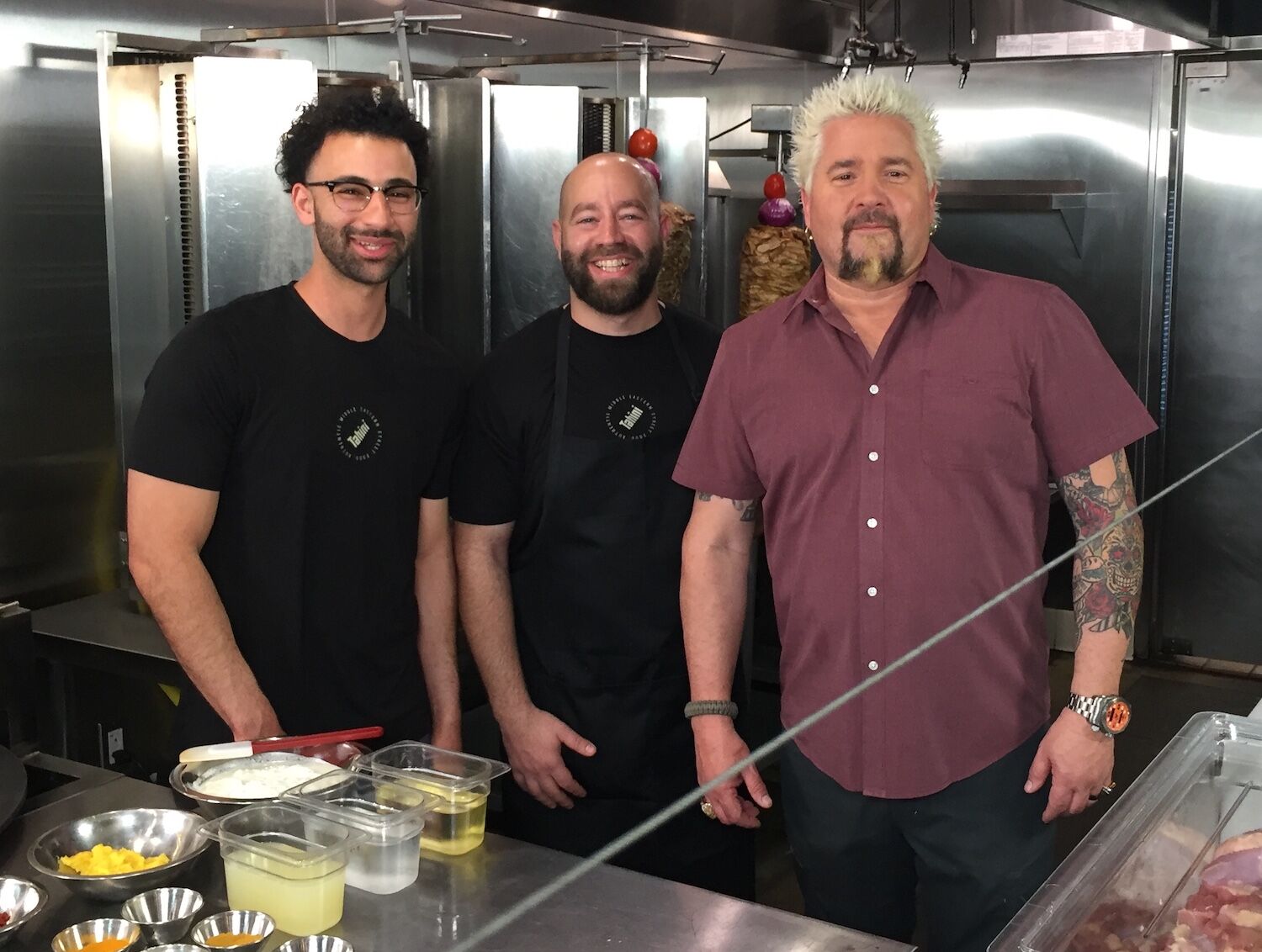
TAHINI-guy-fieri
John Dole
What’s a guy to do with a Harvard Law degree? For Osama Shabaik, the surprising answer was to join forces with good friend Mahmoud (Moody) Barkawi to open up a Middle Eastern street food restaurant—Tahini—and earn the Guy Fieri Triple D stamp of approval.
“We were lamenting over the fact of how inaccessible [Middle Eastern food] was,” Shabaik explains of Tahini. “It’s the food we grew up with and that we always reminisce about. But a bigger part of it was, ‘How can we own a business that we’re proud of in terms of the values that it embodies?’”
What started off as a 10’ x 10’ farmers’ market stand run by two students with one shawarma machine in 2013 turned into a values-driven, brick-and-mortar business in 2017. “For us, there was a fear of going and working for a company or someone where our values may not have aligned. One of the big reasons as to why we went forward with Tahini was to be able to chart our own path,” explains Shabaik.
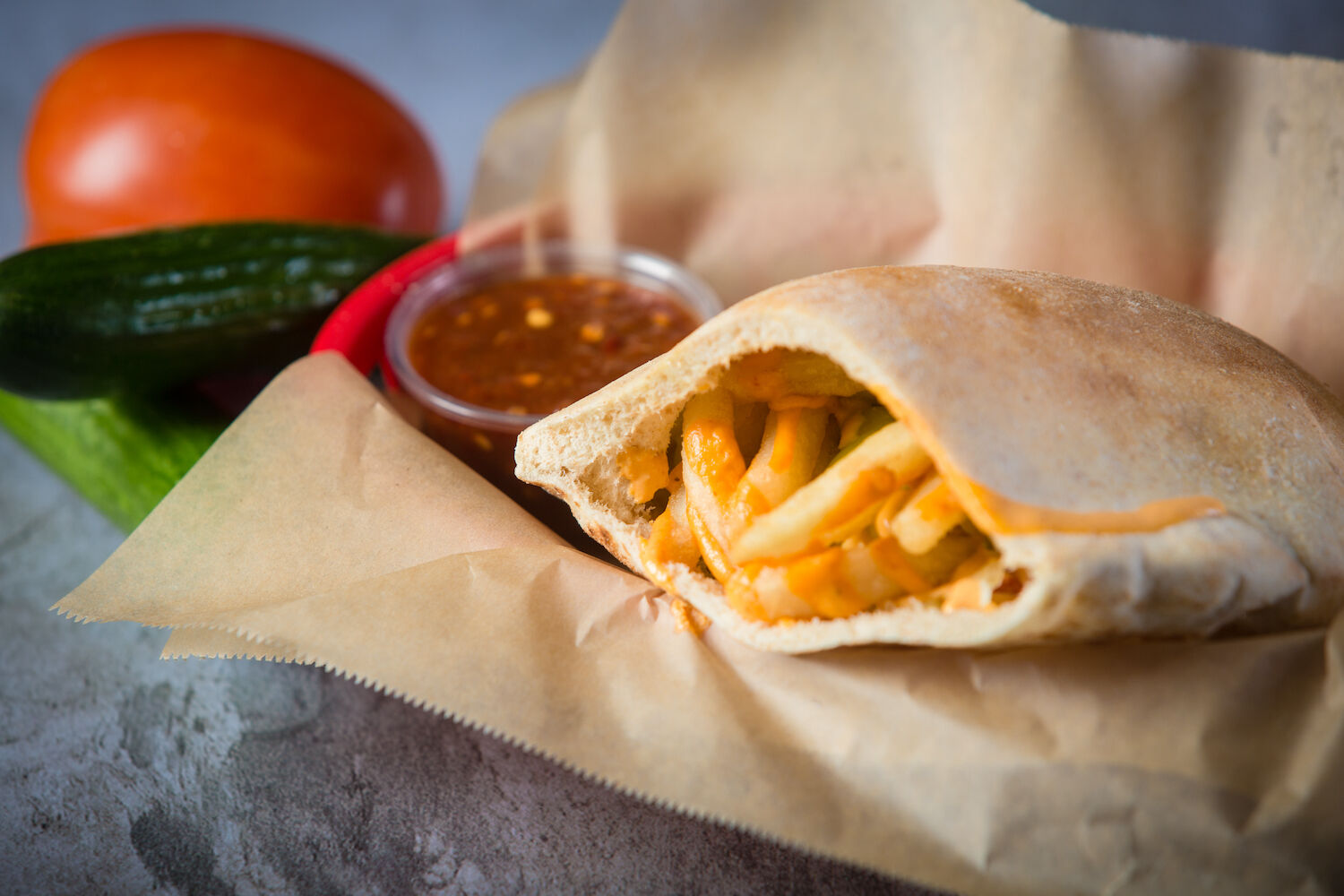
TAHIHI-pita-falafel
John Dole
It’s easy to see why Tahini is catching the attention of locals (and Fieri) in Kearny Mesa. The casual atmosphere and easily-customizable menu almost downplay the fact that everything is made using top-notch ingredients—such as the antibiotic-free chicken and beef, marinated in more than 10 fresh herbs and spices. Their claim to fame is their chicken shawarma pita (a.k.a. The Esquire) packed with french fries, garlic, Sriracha, tomatoes, and pickled cucumbers.
Little things also count—like their squeaky halloumi cheese sticks. Breaded and fried to crispy, non-oily bites, dip them into a serving of sticky-sweet fig jam. Though the Tahini fries are a loaded, nap-inducing joy, the pickled turnips are the best thing on their menu.
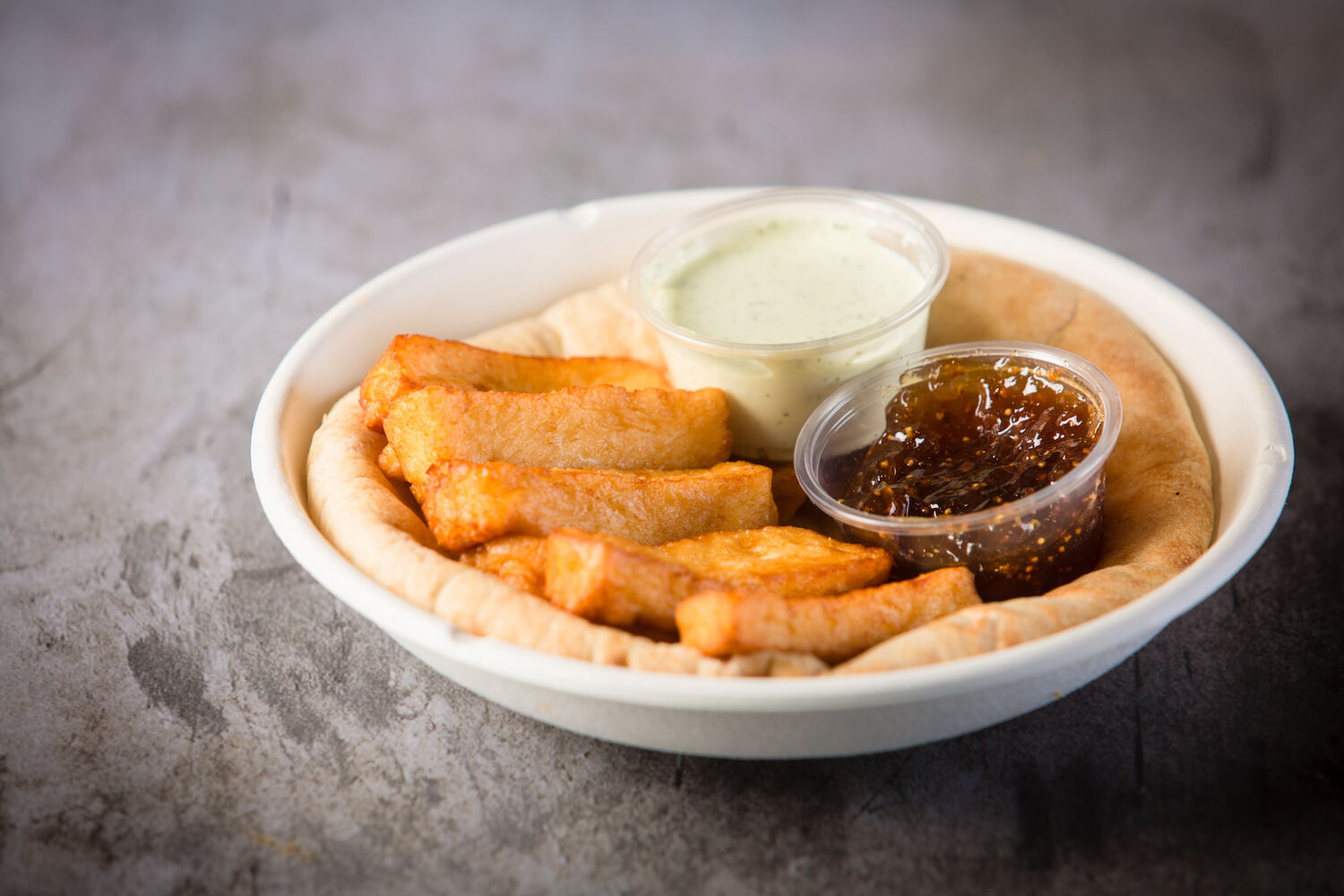
TAHINI-fries
John Dole
Beyond food, Shabaik and Barkawi were determined to create a welcoming space to hire refugees coming from the Middle East. “For folks that may or may not speak English, it’s just one small way to give them a taste of home,” says Shabaik. The duo have also established a working business model, an increasingly hard thing to accomplish in the restaurant industry.
PARTNER CONTENT
They provide above-minimum wage pay to all staff members, invest in eco-friendly, biodegradable packaging for food items, and commit to halal meats, local produce, and a from-scratch approach for all their menus. As their website says, “When it comes to respecting the earth and the communities that make it up, no price is too high to pay.”

